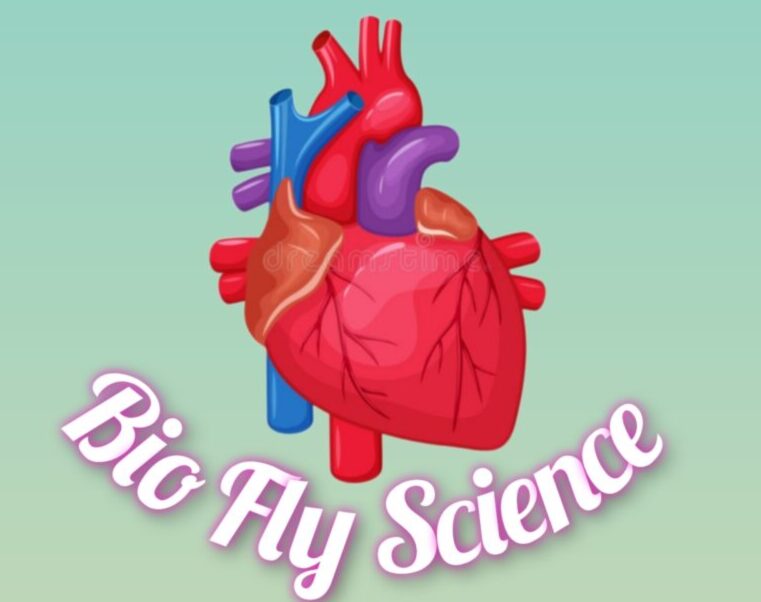What is vitamin ?
Vitamins are essential micronutrients that our bodies need in small amounts to function properly. They play crucial roles in various bodily functions, including metabolism, immunity, and overall health.
Why are vitamins essential?
Vitamins are essential for energy, immunity, skin health, bone strength, antioxidant protection, nerve function, hormone regulation, DNA repair, heart health, brain function, and overall well-being.

Vitamin A :
- Chemical Name: Retinol, retinal, retinoic acid.
- Structure: Fat-soluble, typically found in animal products as retinol or plant-based foods as provitamin A carotenoids (e.g., beta-carotene).
- Fruit Sources: Primarily in fruits like mangoes, cantaloupe, and apricots
- Vegetable Sources: Found in vegetables like carrots, spinach, and sweet potatoes
- Function: Essential for vision, immune function, and skin health
- Deficiency Diseases: Night blindness, increased susceptibility to infections.
- Benefits: Supports eye health, immune system, and skin integrity.

Vitamin B Complex (B1, B2, B3, B5, B6, B7, B9, B12) :
Vitamin B1 (Thymine):
- Chemical Name: Thiamine
- Structure: Water-soluble, composed of a thiazole ring and a pyrimidine ring
- Fruit Sources: Found in fruits like oranges, watermelon, and pineapple
- Vegetable Sources: Present in vegetables such as peas, spinach, and potatoes
- Function: Essential for energy metabolism, nerve function, and carbohydrate metabolism
- Deficiency Diseases: Beriberi (wet and dry types), Wernicke-Korsakoff syndrome
- Benefits: Supports nervous system health, energy production, and carbohydrate metabolism
Vitamin B2 (Riboflavin):
- Chemical Name: Riboflavin
- Structure: Water-soluble, composed of a ribitol and a flavin mononucleotide (FMN) or flavin adenine dinucleotide (FAD)
- Fruit Sources: Found in fruits like bananas, avocados, and citrus fruits
- Vegetable Sources: Present in vegetables such as leafy greens, asparagus, and broccoli
- Function: Essential for energy production, metabolism of fats, drugs, and steroids, and maintenance of healthy skin and vision
- Deficiency Disease: Ariboflavinosis
- Benefits: Supports energy metabolism, healthy skin, and vision
Vitamin B3 (Niacin):
- Chemical Name: Niacin, nicotinic acid, nicotinamide
- Structure: Water-soluble, composed of a pyridine ring with an amide group
- Fruit Sources: Found in fruits like dates, avocados, and tomatoes
- Vegetable Sources: Present in vegetables such as potatoes, carrots, and peas
- Function: Essential for energy metabolism, DNA repair, and synthesis of steroid hormones
- Deficiency Disease: Pellagra
- Benefits: Supports energy production, healthy skin, and nervous system function
Vitamin B5 (Pantothenic Acid):
- Chemical Name: Pantothenic acid
- Structure: Water-soluble, composed of a pantoic acid linked to a β-alanine via an amide bond
- Fruits Sources: Found in fruits like avocado, raspberries, and strawberries
- Vegetables Sources: Present in vegetables such as broccoli, cauliflower, and sweet potatoes
- Function: Essential for energy metabolism, synthesis of fatty acids, and hormone production
- Deficiency Disease: Rare, but may cause fatigue, irritability, and neurological symptoms
- Benefits: Supports energy proNameduction, healthy skin, and hormone synthesis.
Vitamin B6 (Pyridoxine):
- Chemical name : Pyridoxine, pyridoxal, pyridoxamine.
- Structure: Water-soluble, composed of a pyridine ring with various functional groups.
- Fruits Sources: Found in fruits like bananas, avocados, and prunes.
- Vegetable Sources: Present in vegetables such as spinach, potatoes, and bell peppers.
- Function: Essential for amino acid metabolism, neurotransmitter synthesis, and immune function
- Deficiency Disease: Rare, but may cause neurological symptoms, dermatitis, and anaemia.
- Benefits: Supports brain health, mood regulation, and immune function.
Vitamin B7 (Biotin):
- Chemical Name: Biotin
- Structure: Water-soluble, composed of a ureido ring with a sulfur atom and a valeric acid side chain
- Fruit Sources: Found in fruits like bananas, raspberries, and strawberries
- Vegetable Sources: Present in vegetables such as spinach, broccoli, and sweet potatoes
- Function: Essential for metabolism of carbohydrates, fats, and proteins, and synthesis of fatty acids
- Deficiency Disease: Rare, but may cause dermatitis, hair loss, and neurological symptoms
- Benefits: Supports metabolism, healthy hair and nails, and may improve glucose tolerance
Vitamin B9 (Folic Acid):
- Chemical Name: Folic acid, folate
- Structure: Water-soluble, composed of a pteridine ring linked to para-aminobenzoic acid (PABA) and glutamic acid residues
- Fruit Sources: Found in fruits like oranges, strawberries, and papaya
- Vegetable Sources: Present in vegetables such as spinach, broccoli, and Brussels sprouts
- Function: Essential for DNA synthesis, cell division, and red blood cell formation
- Deficiency Disease: Megaloblastic anemia, neural tube defects (in babies)
- Benefits: Supports fetal development (during pregnancy), red blood cell production, and may reduce the risk of neural tube defects.
Vitamin B12 (Cyanocobalamin):
- Chemical Name: Cyanocobalamin, hydroxocobalamin, methylcobalamin
- Structure: Water-soluble, contains a corrin ring with a central cobalt atom
- Fruit Sources: Found in trace amounts in some fermented fruits like miso and tempeh
- Vegetable Sources: Not found in vegetables, except for some fermented products like certain types of seaweed
- Function: Essential for DNA synthesis, red blood cell formation, and nerve function
- Deficiency Disease: Pernicious anaemia, neurological symptoms
- Benefits: Supports nerve health, red blood cell production, and may improve cognitive function.

Vitamin C :
- Chemical Name: Ascorbic acid
- Structure: Water-soluble, found in various fruits and vegetables
- Fruit Sources: Abundant in citrus fruits like oranges, lemons, and strawberries
- Vegetable Sources: Found in vegetables such as bell peppers, broccoli, and tomatoes
- Function: Acts as an antioxidant, supports immune function, collagen synthesis, and iron absorption
- Deficiency Disease: Scurvy
- Benefits: Boosts immunity, promotes wound healing, and aids in iron absorption.
Vitamin D :
- Chemical Name: Calciferol (D2, D3)
- Structure: Fat-soluble, synthesized by the body with sunlight exposure, also found in some foods.
- Vegetable Sources: Present in small amounts in mushrooms
- Function: Important for bone health, calcium absorption, immune function, and cell growth regulation.
- Deficiency Disease: Rickets (in children), osteomalacia (in adults)
- Benefits: Supports bone strength, immune system, and overall health.
Vitamin E :
- Chemical Name: Tocopherols, Tocotrienols
- Structure: Fat-soluble, found in various plant oils, nuts, seeds, and green leafy vegetables.
- Fruit Sources: Present in fruits like kiwi, avocado, and mango
- Vegetable Sources: Found in vegetables such as spinach, broccoli, and Swiss chard.
- Function: Acts as an antioxidant, protects cells from damage, and supports immune function.
- Deficiency Disease: Rare, but can lead to nerve damage
- Benefits: Helps protect against oxidative stress, supports skin health, and may reduce the risk of chronic diseases.
Vitamin K :
- Chemical Name: Phylloquinone (K1), Menaquinones (K2)
- Structure: Fat-soluble, found in green leafy vegetables, some fruits, and fermented foods
- Fruit Sources: Present in fruits like kiwi, grapes, and blueberries, albeit in small amounts
- Vegetable Sources: Abundant in vegetables such as kale, spinach, and broccoli
- Function: Essential for blood clotting, bone health, and may have roles in heart health and cancer prevention
- Deficiency Disease: Increased risk of bleeding
- Benefits: Supports blood clotting, bone metabolism, and overall cardiovascular health.

These vitamins play crucial roles in various physiological processes and are obtained through a balanced diet rich in fruits, vegetables, and other nutrient-dense foods.
Vitamins are essential because they play critical roles in various physiological processes necessary for overall health and well-being. They are involved in energy metabolism, immune function, tissue repair, antioxidant protection, bone health, nerve function, hormone regulation, DNA synthesis, and more. Without an adequate intake of vitamins, the body cannot perform these essential functions optimally, leading to deficiencies and increased risk of disease and dysfunction. Therefore, obtaining vitamins through a balanced diet is crucial for maintaining optimal health and vitality.
The relationship between vitamins and the body is symbiotic and essential for maintaining overall health and well-being. Vitamins are organic compounds that the body requires in small amounts to perform various physiological functions. When consumed through food or supplements, vitamins are absorbed by the body and utilized for processes such as energy metabolism, immune function, tissue repair, and growth.
Each vitamin has specific roles and functions within the body. For example, vitamin A is crucial for vision, vitamin C supports immune function, vitamin D is necessary for calcium absorption and bone health, and the B vitamins play roles in energy metabolism and nervous system function.

1 thought on “Vitamins : Food Sources & Importance”